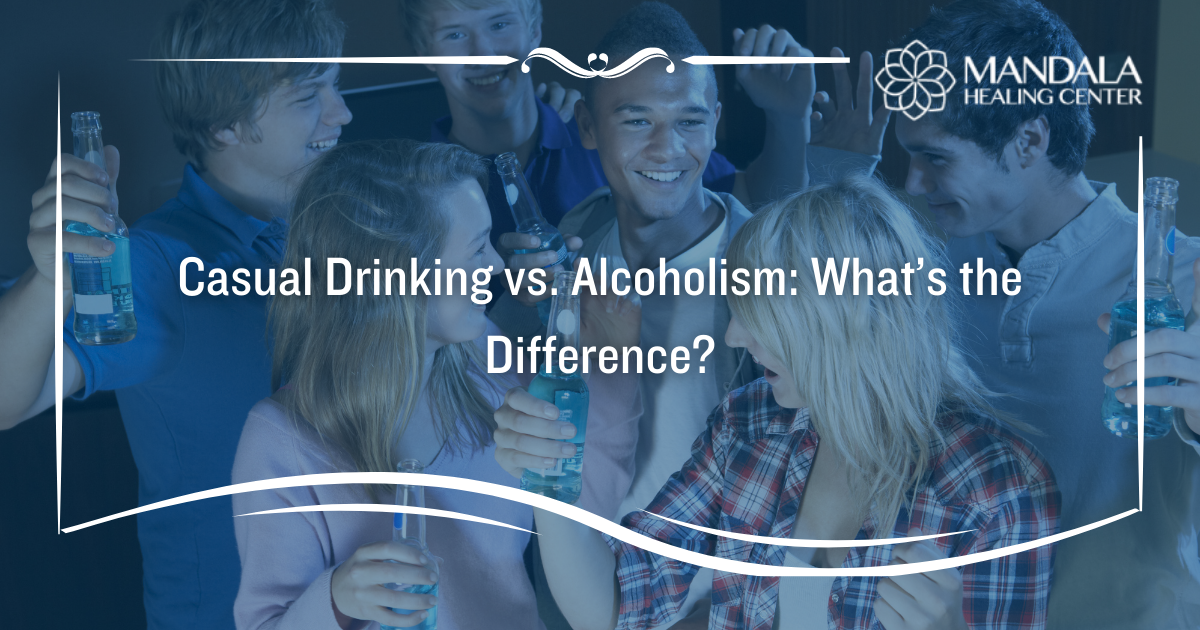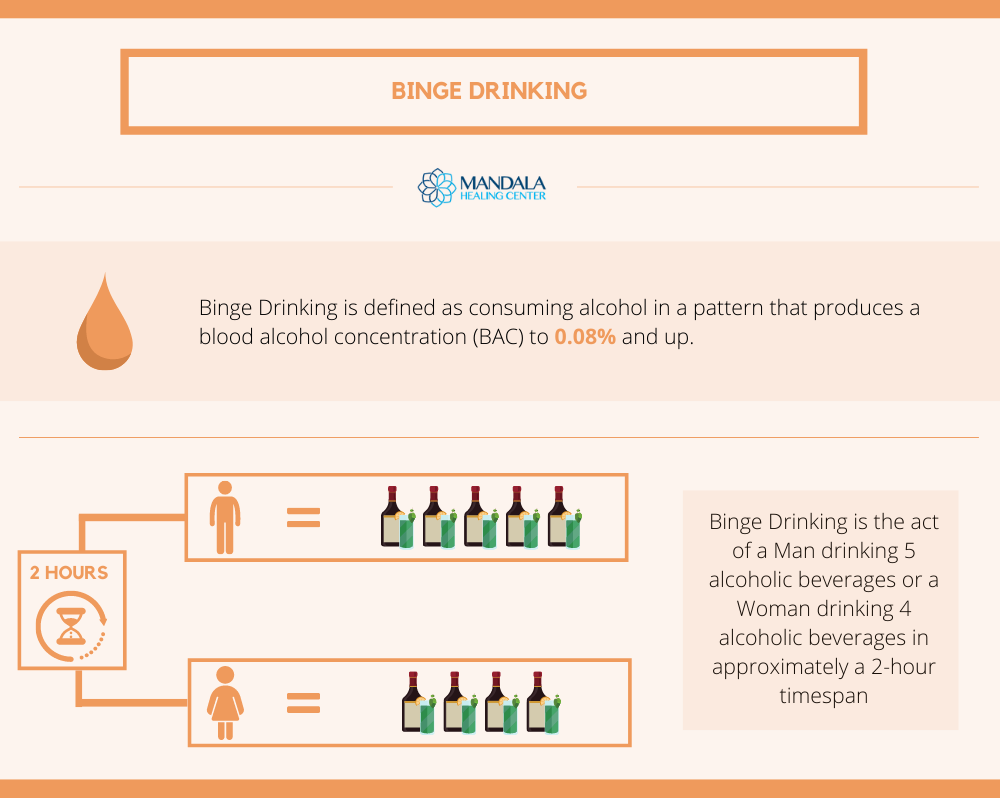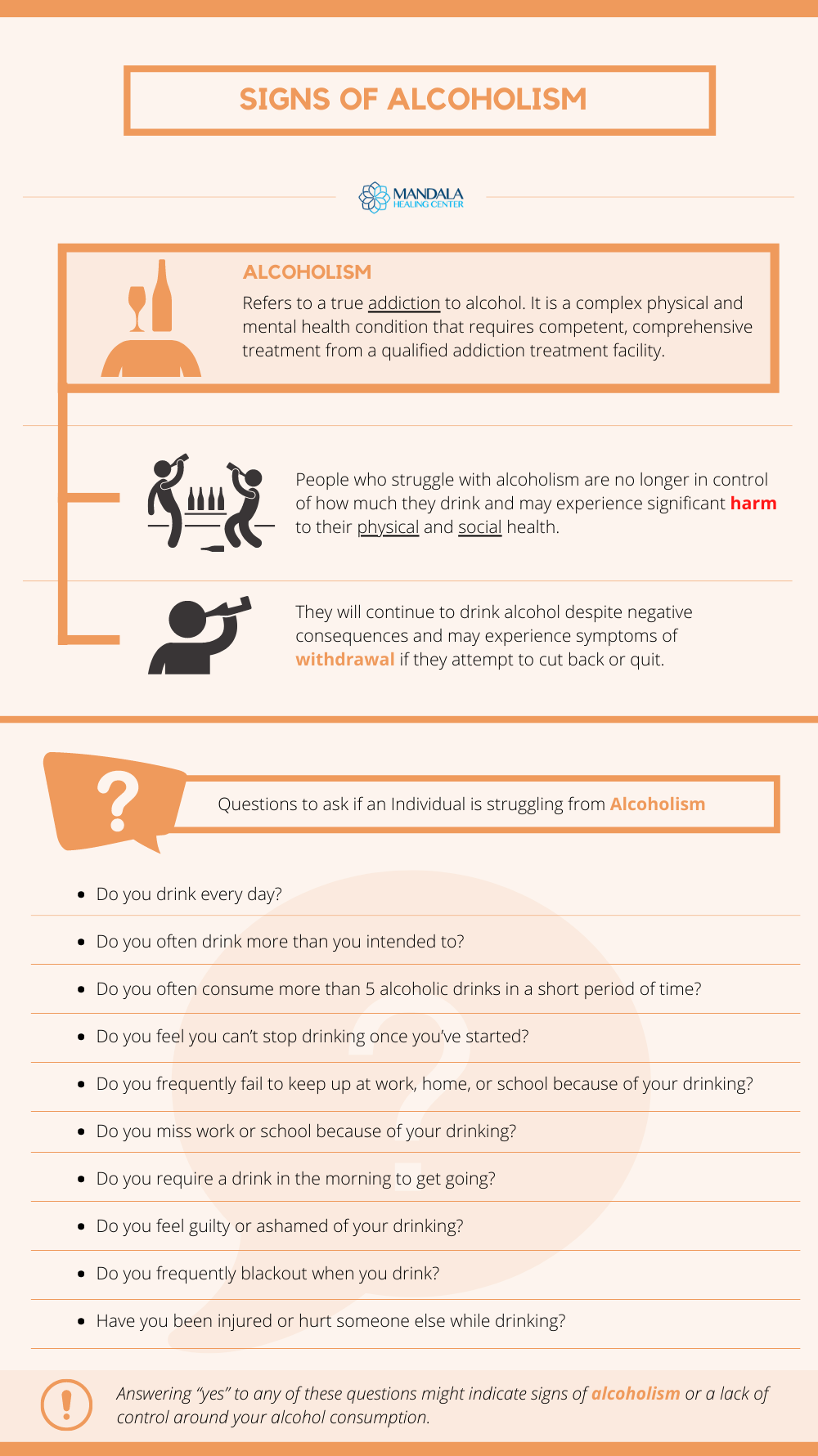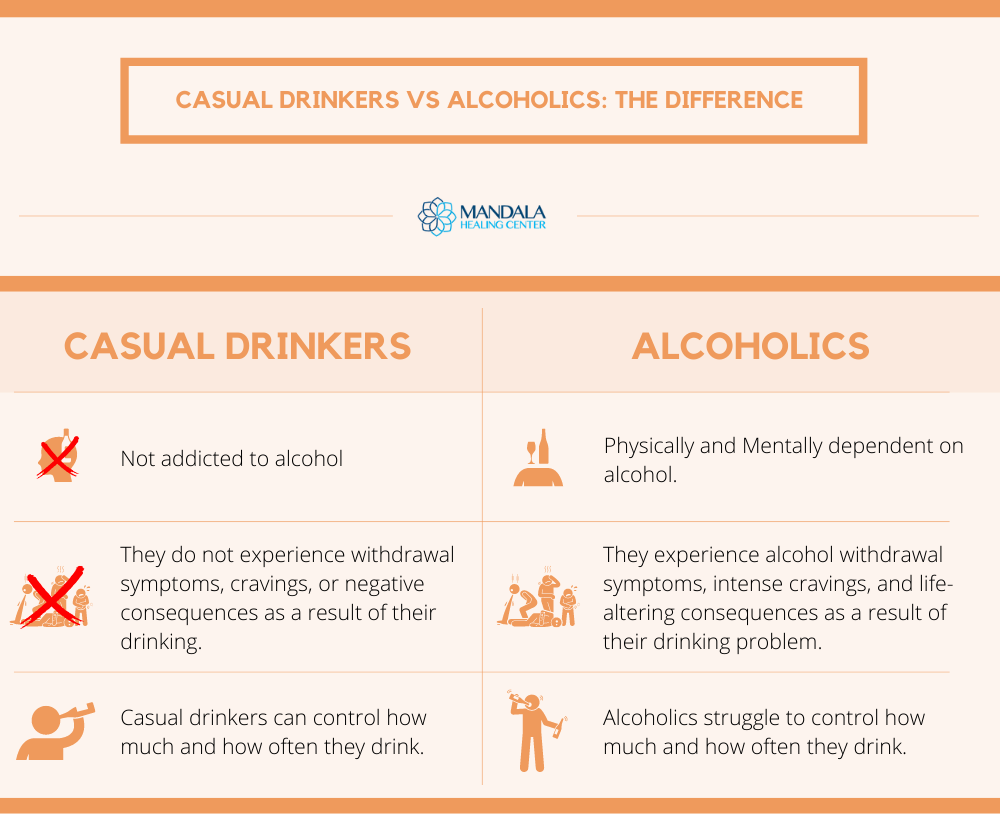Alcohol is one of the most commonly-used mind-altering substances in the United States.[1] Drinking alcohol is common in American culture, from a glass of wine with dinner to drinks with friends and family on special occasions and during social gatherings. While most adults drink alcohol at some point in their lives, many people drink regularly. But when does casual drinking turn into problem drinking or alcoholism? Moreover, what is the difference between casual drinking and alcoholism?
If you are concerned about your relationship with alcohol, it’s important to understand what is healthy and what is problematic. In movies and on TV, alcoholism is portrayed in many dramatic ways. In reality, problematic drinking and alcoholism can be more subtle and difficult to define. Knowing what to look for and what treatment options are available can help you get the help you need to overcome addiction or readjust your relationship with alcohol.
What is Casual Drinking?
Having an occasional glass of wine with a meal, enjoying a beer during a game, or having cocktails at a party are all examples of casual drinking. Unlike alcoholism, casual drinking happens in a social setting. People who drink casually don’t have negative consequences, don’t drink more than they intend to, and don’t black out or get drunk.
Casual drinkers may decide to forgo alcohol and then end up having a drink during a happy hour outing with their friends from work. This is not a sign that they struggle with alcoholism or problematic drinking, but simply that they momentarily gave in to peer pressure or changed their mind. For the casual drinker, alcohol is not a problem-solver or a way to manage their emotions. It is simply an enjoyable part of life. They do not experience shame, negative consequences, or regret about the amount of alcohol they drink.
What is Problem Drinking?
Someone may be engaging in problematic drinking if they frequently drink more than they intend to, or use alcohol to help them manage uncomfortable emotions like sadness, anger, or boredom. They may have health or social consequences as a result of their drinking but are able to stop using alcohol whenever they choose to.
Some signs of problematic drinking include:
- Regularly drinking 3 (for women) or 4 (for men) or more drinks per day
- Binge drinking (more than 5 drinks in a 2-hour period)
- Feeling guilt about your drinking
- Having people express concern about your drinking
- Drinking when you are bored, lonely, anxious, or having other uncomfortable emotions
While it is possible for people to quit drinking at this stage, problem drinking can lead to alcoholism. It is important to get support and treatment to learn new, healthy ways to manage your emotions and address your problematic relationship with alcohol.
Signs of Alcoholism
While casual drinking is socially acceptable and relatively safe, alcoholism refers to a true addiction to alcohol. People who struggle with alcoholism are no longer in control of how much they drink and may experience significant harm to their physical and social health. They will continue to drink alcohol despite negative consequences and may experience symptoms of withdrawal if they attempt to cut back or quit. Left untreated, alcoholism can lead to severe health consequences, legal and financial problems, and serious damage to people’s relationships. Alcoholism is a complex physical and mental health condition that requires competent, comprehensive treatment from a qualified addiction treatment facility.[2]
If you think you or a loved one may be struggling with alcoholism, ask yourself these questions:
- Do you drink every day?
- Do you often drink more than you intended to?
- Do you often consume more than 5 alcoholic drinks in a short period of time?
- Do you feel you can’t stop drinking once you’ve started?
- Do you frequently fail to keep up at work, home, or school because of your drinking?
- Do you miss work or school because of your drinking?
- Do you require a drink in the morning to get going?
- Do you feel guilty or ashamed of your drinking?
- Do you frequently blackout when you drink?
- Have you been injured or hurt someone else while drinking?
Answering “yes” to any of these questions might indicate signs of alcoholism or a lack of control around your alcohol consumption. People who engage in casual drinking will answer “no” to these questions. The earlier you get help for addiction, the better the chance you will have of recovering and going on to lead a healthy life.
What is the Difference Between Casual Drinking and Alcoholism?
Simply put, casual drinkers are not addicted to alcohol. They do not experience withdrawal symptoms, cravings, or negative consequences as a result of their drinking. Casual drinkers can also control how much and how often they drink.
Alcoholics, on the other hand, are physically and mentally dependent on alcohol. They experience alcohol withdrawal symptoms, intense cravings, and life-altering consequences as a result of their drinking problem. These individuals struggle to control how much and how often they drink.
Start Alcohol Rehab in West Palm Beach Today
If you or someone you love need treatment for alcohol addiction, you are not alone. The staff at the Mandala Healing Center offers a range of treatment programs that can give people the support and skills they need to overcome addiction. We believe that anyone can recover from addiction and heal their relationship with drugs and alcohol if they have the right treatment.
If you need alcohol rehab in West Palm Beach, do not wait another day. Take the first step and we will walk the rest of the way with you. Call today to speak to one of our admissions counselors.
References:















